Affiliate links on Android Authority may earn us a commission. Learn more.
The dark side of trackers: avoid mistakes that could hurt your fitness goals
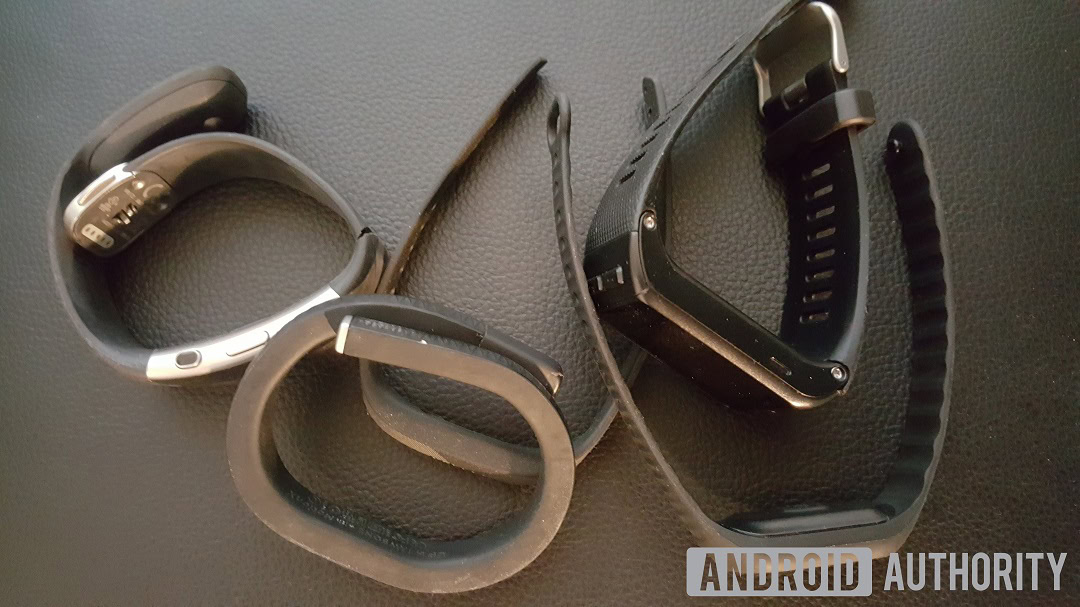
Fitness trackers are legitimately excellent tools for getting into shape. While they can’t magically turn you into a lean, mean, healthy-eating machine, they do encourage an increased mindfulness when it comes to calories consumed and steps taken, and often that’s enough to make a dent in your fitness goals.
But while this is true, it’s also important to recognize that fitness trackers have a dark side, too. In fact, fitness trackers can sometimes cause more harm than good. But the problem is not with the hardware but with the wetware. So how can you make sure you’re getting positive results?
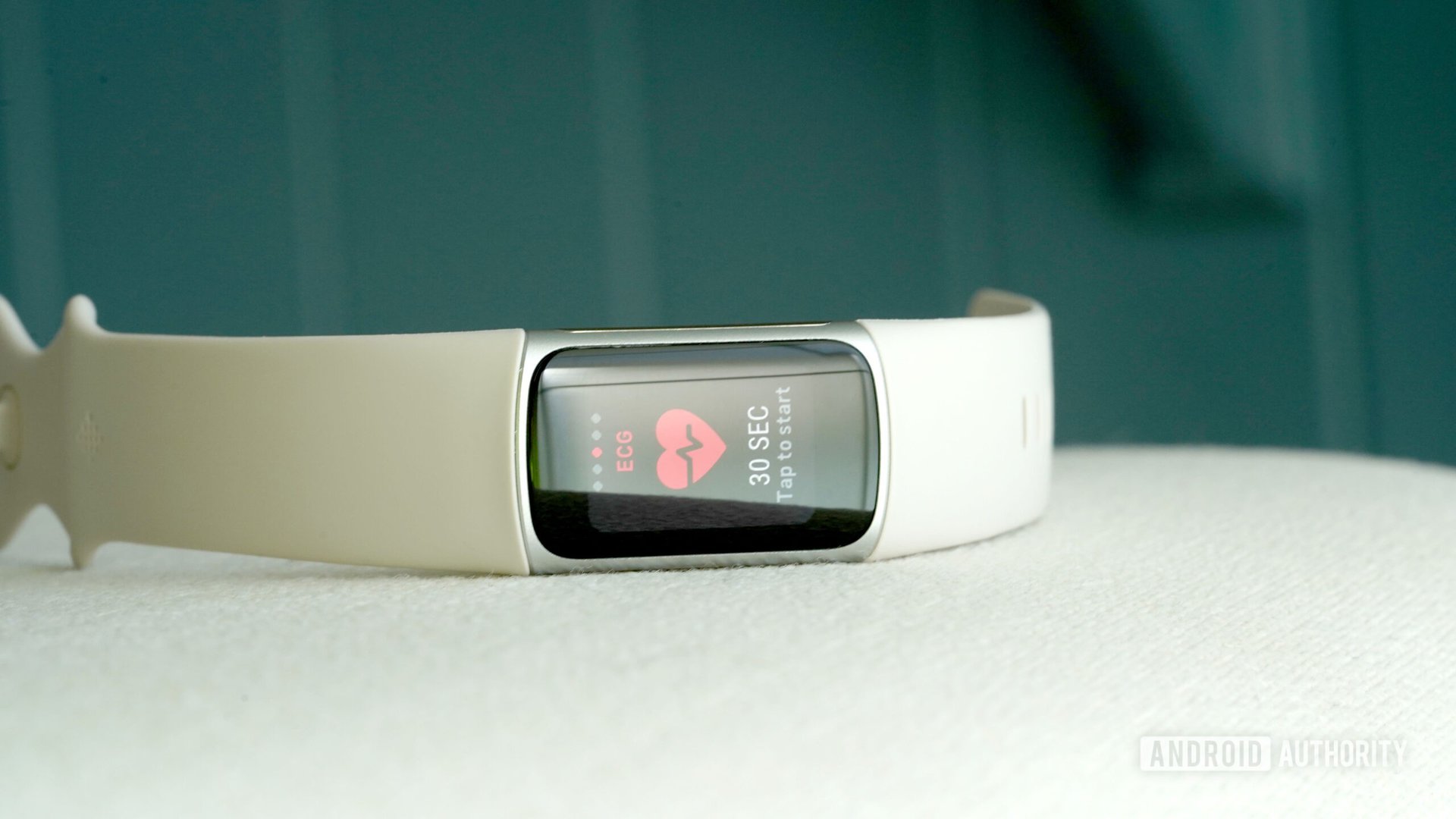
Data is addictive
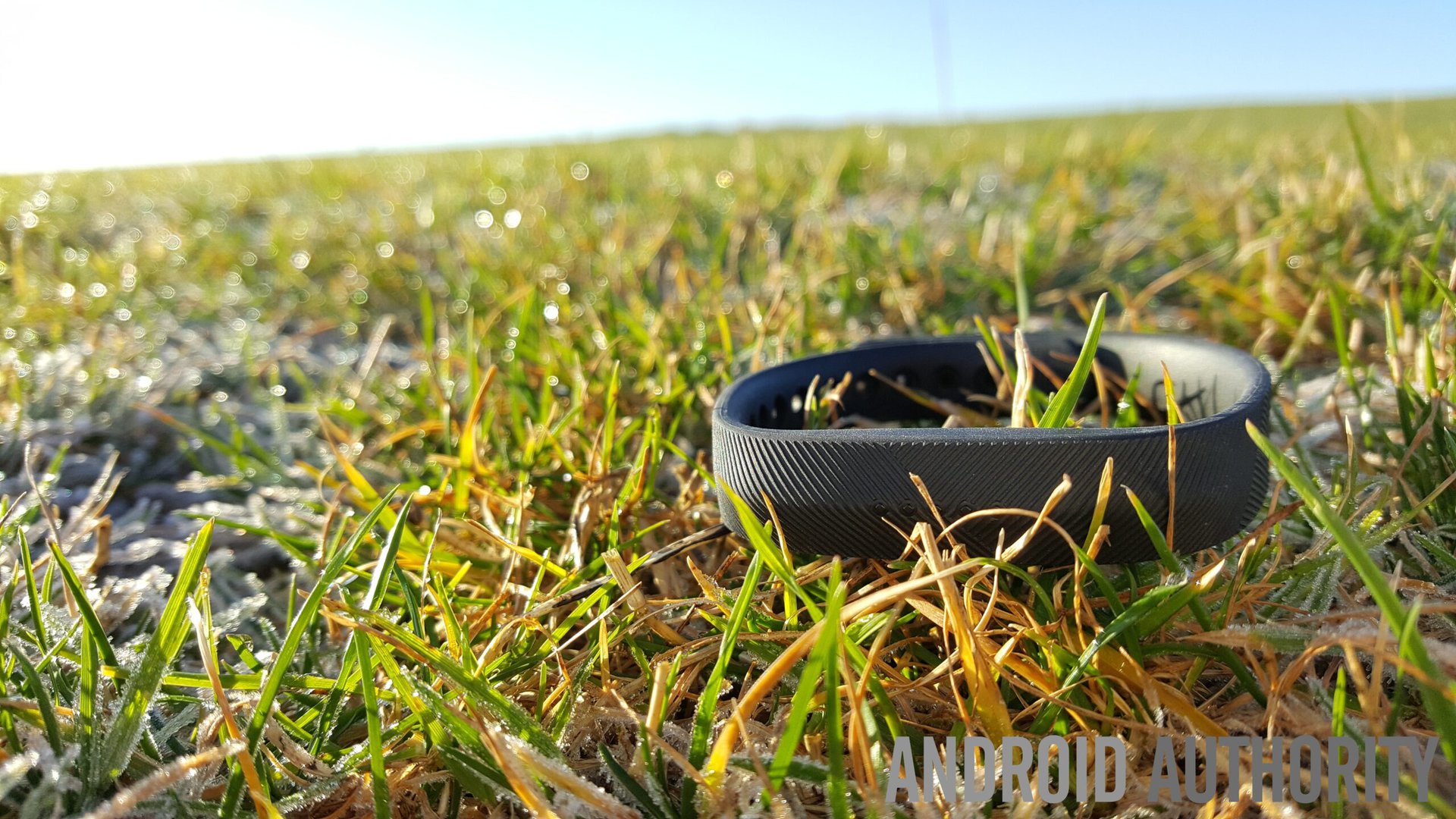
As I mentioned in a previous post, one of the best ways to lose weight or get fitter with a fitness tracker is simply to monitor the calories you’re consuming and then to subtract the calories you’re burning. If you maintain a deficit, then you should find that the pounds gradually fall off.
You may also find that this encourages you to walk just a little more, to train just a little more and to perhaps turn down the occasional snack. And as you do this, you will find you build up a glorious picture of your health, filled with regular workouts, long walks and prestigious badges and awards given to you by Fitbit, Garmin or Microsoft.
Success begets success begets… addiction. The more you build this perfect picture of health, the harder it will be to let there be a gap in that data or a ‘bad day’. You can become jealously protective of your perfect profile.
In the worst case scenario, this could be a one way ticket to an eating disorder. Conditions like bulimia and anorexia are caused precisely by the addictive nature of losing weight and seeing gradual progress and adding numbers to this can only make matters worse.
Success begets success begets... addiction.
That’s not to say that using a Fitbit is going to give you an eating disorder – not at all. I want to emphasize that this isn’t likely for most people. It is simply to say that there can be too much of a good thing and if you are predisposed to this kind of mental illness, then ‘lifelogging’ could well become a catalyst.
More likely for the rest of us, is that we can lose sight of why we began exercising in the first place. It’s gutting when you go to do a workout and then find out that your band has run out of battery. So gutting in fact, that you might even consider skipping the workout entirely… I have known people to do this!

The best way to get fitter is to be consistent with your exercise
The best way to get fitter is to be consistent with your exercise. And the best way to do that is to learn to enjoy exercising. Starting a love affair with your workout metrics can be a barrier to that.
Another risk is that a fitness tracking addiction can spur you on to over-train, possibly leading to an injury. It’s important that we listen to our bodies and don’t chase after another badge for 10,000 steps when our legs are aching from the previous feat. I may have been guilty of this – pushing to go for more runs and swims when really I should have called it a day.
My fitness tracker is constantly telling me to ‘Move!’ too, even if I have just sat down for an hour after an entire day of hiking. It also says it when I’m in the cinema, or when I’m having a family meal… I just have to breathe and rise above it.
Wearing fitness trackers 24/7 causes problems
The addictive nature of tracking calories and steps can also lead to people wearing their fitness trackers more than perhaps they should and possibly even refusing to take them off. You don’t need to be a detective to see that there are some considerable disadvantages to wearing a wristband or watch of any kind 24/7.
There are some considerable disadvantages to wearing a wristband or watch of any kind 24/7
For one, fitness trackers are bulky and can get in the way when you’re typing or wearing shirts. They also have a bad habit of catching on things and people. I have on regular occasions caught my wife’s hair on my Garmin vívoactive HR or scratched her back with it when trying to be affectionate (affection fail!).
Fitness trackers can also be uncomfortable while sleeping, which is somewhat ironic when you’re wearing them for sleep tracking purposes!
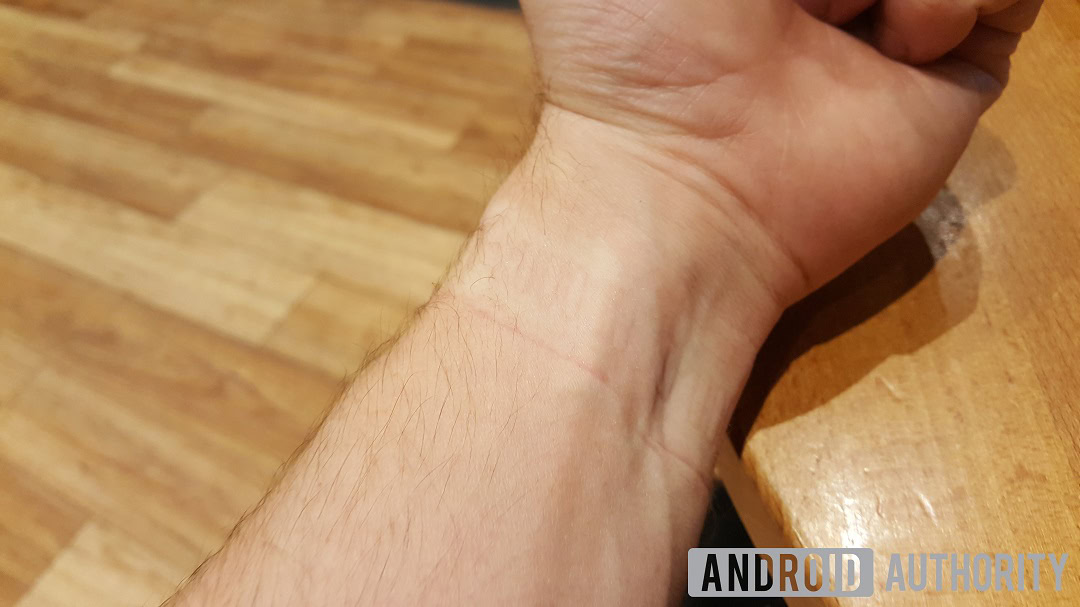
And of course the big issue here is the matter of rashes… Fitbit has had fairly high-profile struggles with customers reporting wrist rashes and now advises users to give their wrists occasional ‘rests’ from their devices. They are not alone in this and even if you don’t get a rash from the material itself, problems can still arise from trapped water, soap and grime as well as a simple lack of sunlight.
Even without the rashes, there are clear hygiene issues surrounding any device intended to be worn in the shower, in bed and to the gym. They can end up smelling pretty funky after a while, so take them off occasionally to give your friends’ noses a rest too!
No fitness tracker is 100% accurate
During 2015-2016, I would usually be found wearing the first Microsoft Band as my fitness tracker of choice. It’s not too comfortable or attractive, but it is full of great metrics and smartwatch features. I enjoyed getting to know my own routine a little better and was shocked at how little I moved some weekends. All in all, it was a great device.
Fitness trackers, no matter how high-end, aren't always accurate
But around the time I started getting into the throes of wedding planning, I noticed my heart rate getting very high. It would be in the 100s while I was asleep and it would go up to 150+ while I was lifting weights (which I knew wasn’t normal). My conclusion was that I must just be very stressed. Then I got worried that I was ill, or that something was seriously wrong. Then I realized that my Band was broken, which is a very good lesson in not taking your fitness tracker at face value always (it might have been an embarrassing discussion with a doctor…).
And even if your fitness tracker isn’t broken, it’s important to note that it’s never going to be 100% accurate. You only have to wear two different fitness trackers at the same time to see instantly see how different the calories burned variable is according to each.
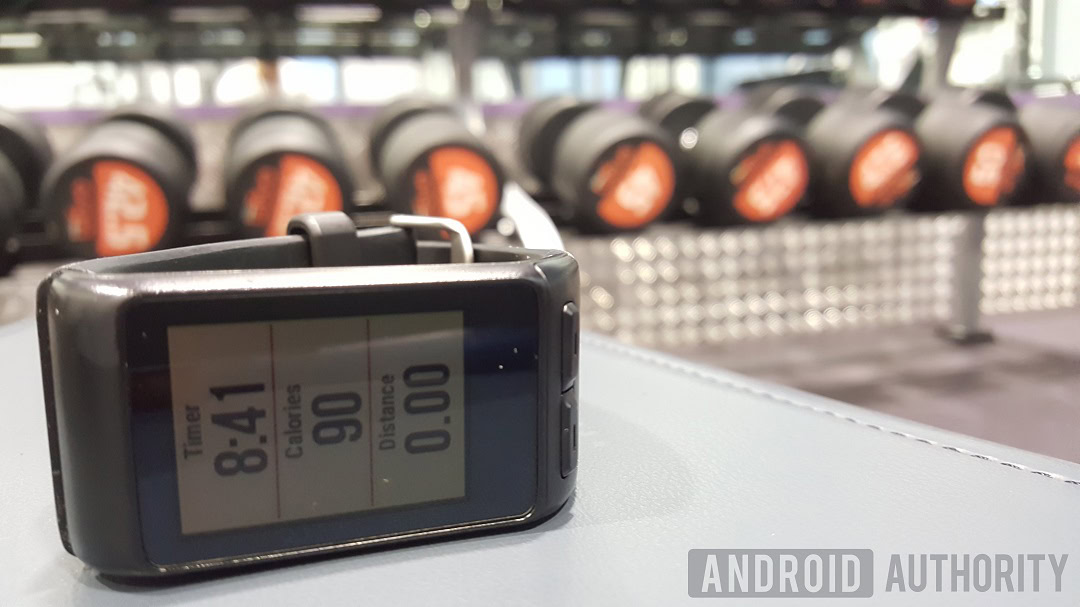
There are plenty of reasons for this. For one, your heart rate is not a perfect measure of caloric expenditure. Then there’s the fact that most fitness trackers have no idea of your precise muscle mass, which means they are basing their measurements on body mass, rather than the far more accurate lean body mass (muscle is metabolically active). There’s no way to perfectly track your calories consumed either – no two apples have the exact same number of calories. Heart rate monitors are imperfect too, even when using a chest strap. And so on.
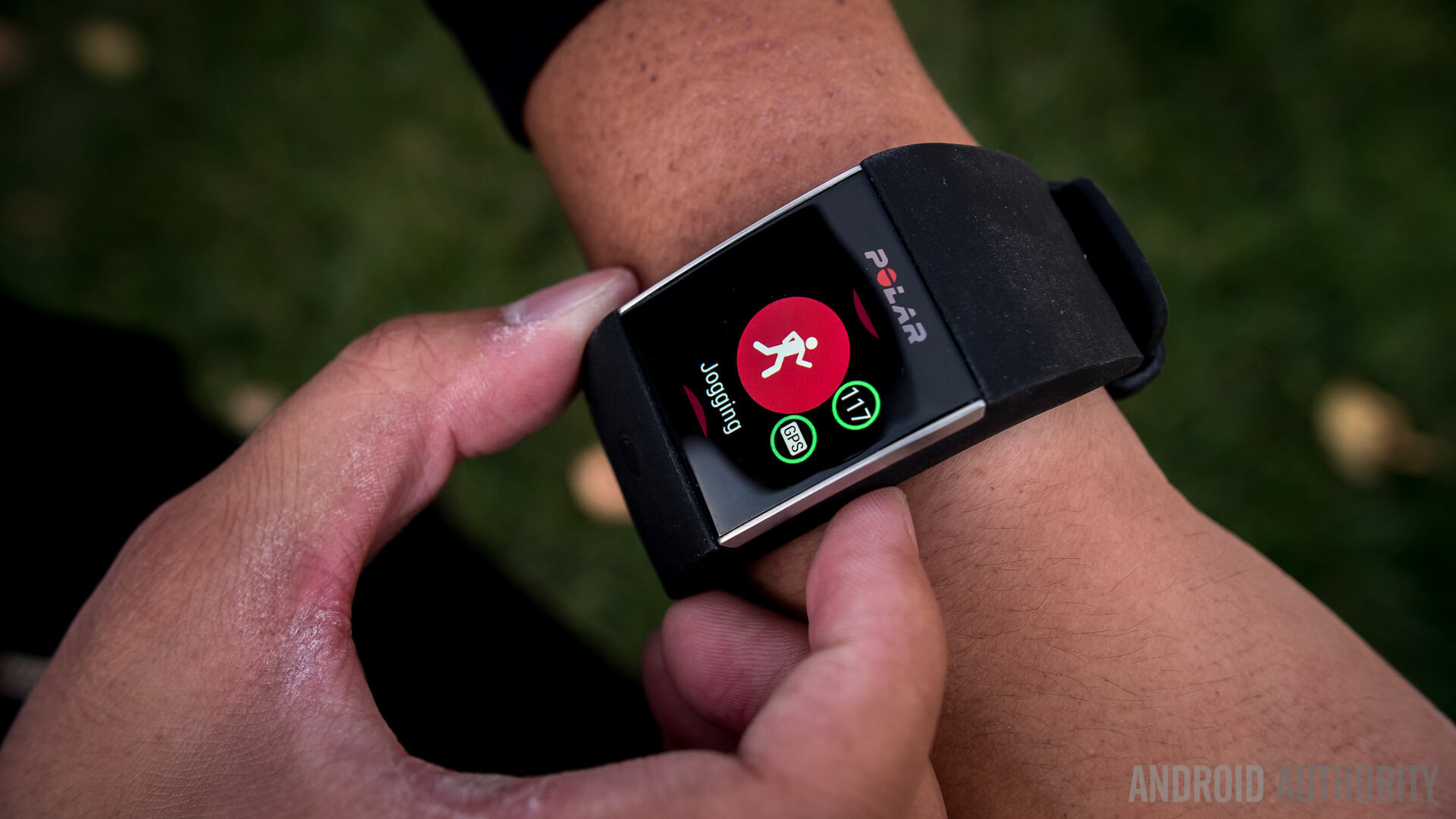
Nor can a fitness tracker tell you anything about hormone balance; a condition like hypothyroidism would throw your results way off.
Heart rate is not a perfect measure of caloric expenditure
So if you think you’re cutting it close to the line – consuming 2,567 calories but burning 2,600… well, you probably aren’t.
How to get the most from your tracker
None of this is to say that fitness trackers are evil, or that they have no use. I still wear my own vívoactive HR most days and I would highly recommend anyone else interested in fitness to do the same. It actually isn’t critical that your data be perfectly accurate so long as it is consistent (and you factor in a margin for error). That way, if the numbers are heading in the right direction, then you are making positive changes.
Fitness trackers are an excellent form of biofeedback, they’re great for motivation and the social element can add a whole extra level. There’s also just something very cool about being able to check your wrist to get a heart rate reading.

Fitness trackers are not perfect, and it’s worth taking a break from them occasionally. Taking a break is good for your skin, your smell, and your psychological well-being. It’s also prudent to take their advice with a pinch of salt and to try not to get too hung up on your tracking. Eventually you’ll throw away your tracker or switch to another device, but your body will be with you for life.
So ultimately, the best fitness tracker is still your own body. If your fitness tracker says keep going but your body says stop, listen to your body!
Next: